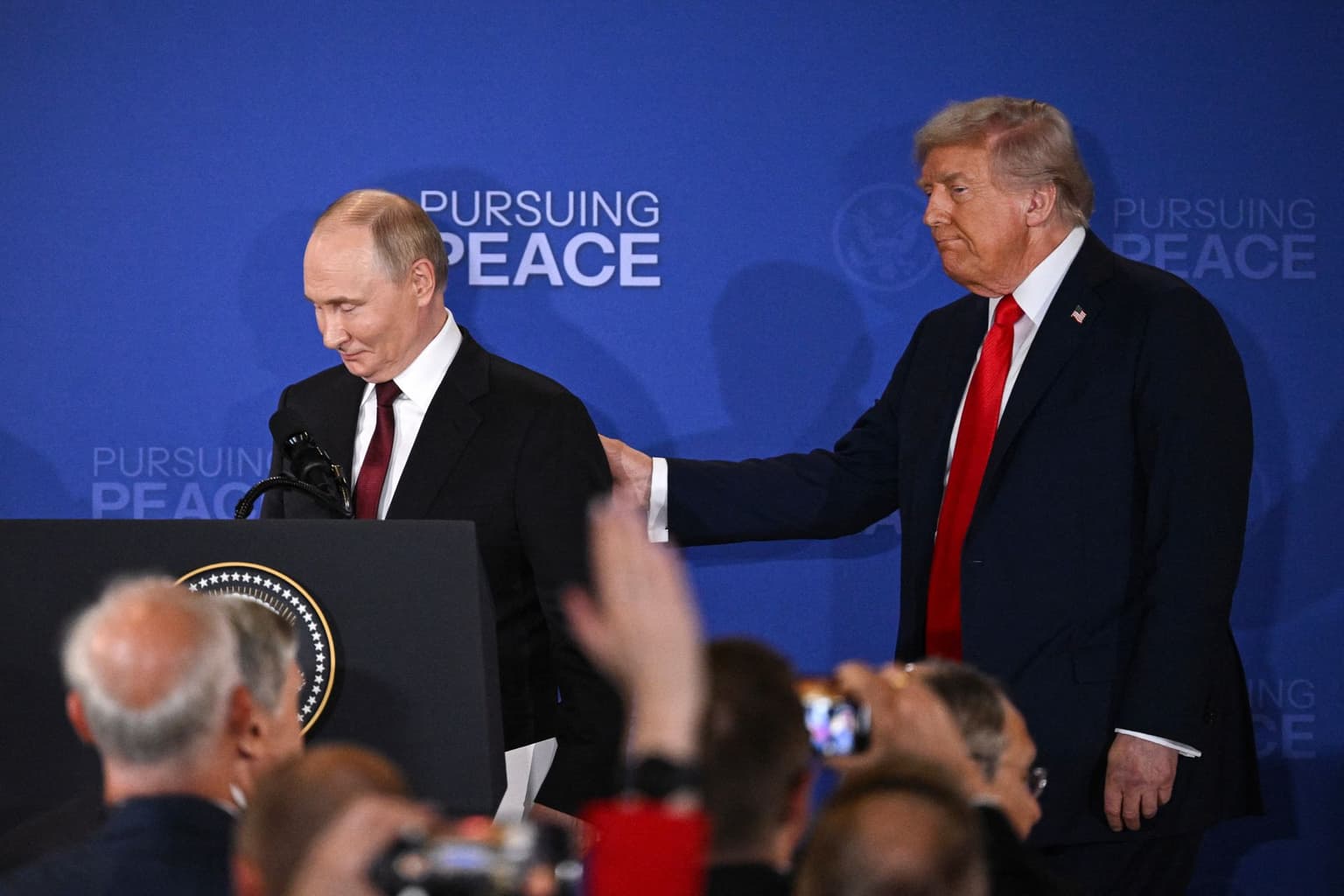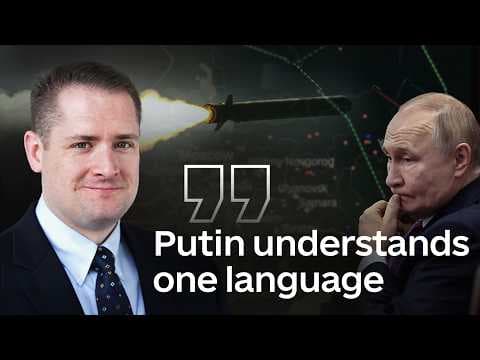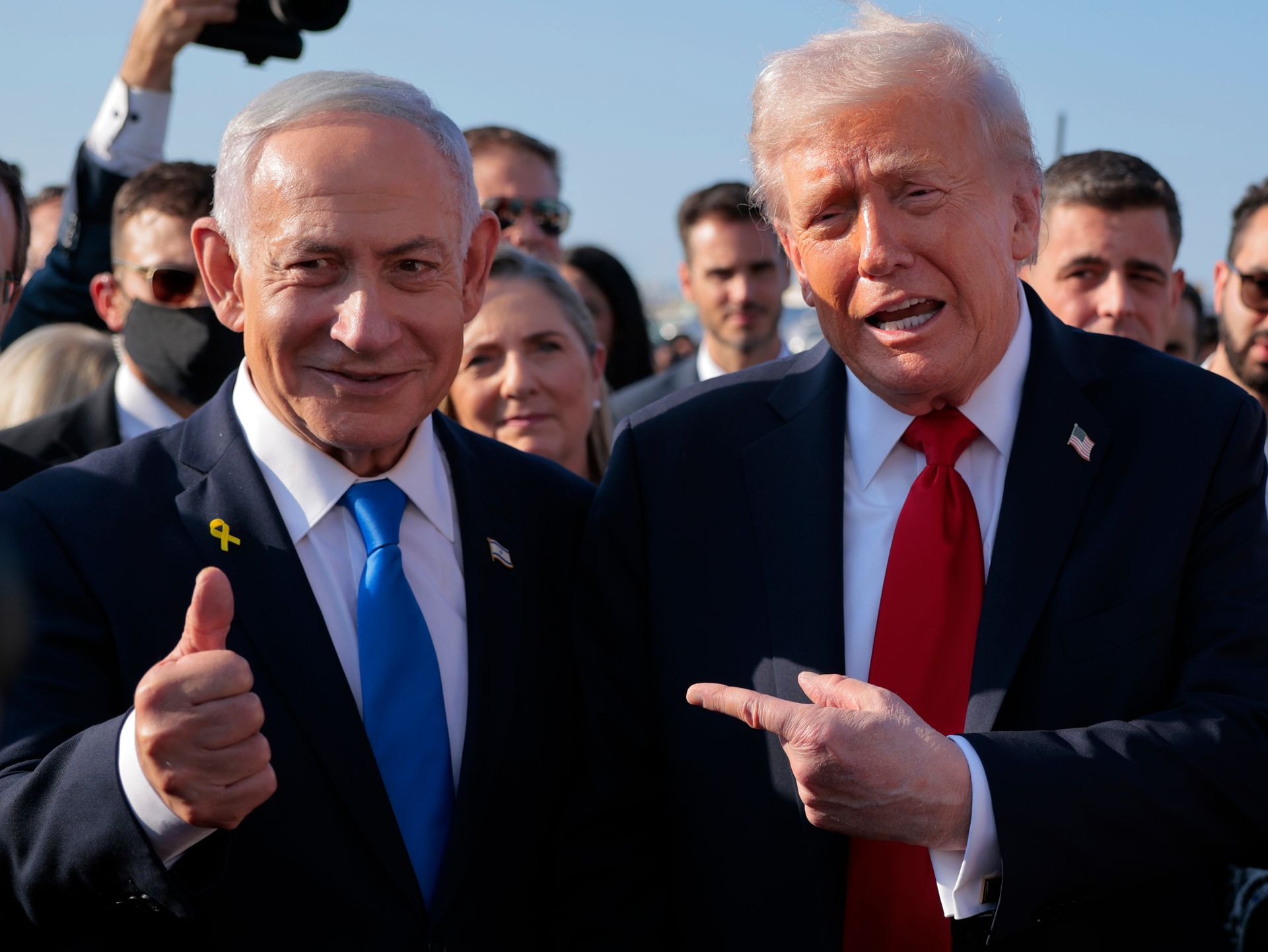Trump, Putin to meet in Budapest for new Ukraine peace push

Editor's note: This is a developing story and is being updated.
U.S. President Donald Trump will meet Russian President Vladimir Putin in Budapest as part of renewed efforts to end Russia's war against Ukraine, Trump announced on Oct. 16.
The announcement followed a two-and-a-half hour phone call between the two leaders earlier the same day, during which they also agreed to hold a high-level U.S.-Russia meeting next week.
"The United States' initial meetings will be led by Secretary of State Marco Rubio, together with various other people, to be designated," Trump wrote on TruthSocial.
It remains unclear who will represent Russia at the meeting.
"President Putin and I will then meet in an agreed-upon location, Budapest, Hungary, to see if we can bring this 'inglorious' war between Russia and Ukraine to an end," the U.S. president added.
When asked by reporters during a press conference later in the day as to when the meeting between himself and Putin would take place, Trump replied: "I would say within two weeks or so. Pretty quick."
Hungarian Foreign Minister Peter Szijjarto said on Oct. 17 that he had spoken with Rubio and his Russian counterpart Sergey Lavrov, adding that preparations for the U.S.—Russia summit are ongoing.
The conversation between Trump and Putin comes a day before President Volodymyr Zelensky's visit to Washington, where he is expected to press for the transfer of Tomahawk long-range missiles to Ukraine.
The call marks the first direct contact between the two leaders in nearly two months and comes amid heightened tensions over the stalled peace talks after Putin's effective dismissal of direct negotiations with Zelensky — an initiative that Trump personally backed.
Trump and Putin last spoke on Aug. 18, after Trump's meetings in Washington with Zelensky and European leaders. Following that call, the U.S. president said he had begun arranging a direct meeting between the Ukrainian and Russian presidents.
Zelensky rejected Putin's invitation to meet in Moscow, calling it impossible while Russia bombs Ukraine, but repeatedly said he is ready to meet the Russian leader on neutral ground.
Trump and Putin also met in Alaska on Aug. 15 to discuss prospects for a peace settlement in Russia's war and broader bilateral cooperation — their first meeting since Trump's return to office.
Since the Alaska summit, no tangible progress has been made toward peace.

White House Press Secretary Karoline Leavitt told reporters following the U.S. president's announcement that Trump believes a meeting between Putin and Zelensky was "possible," adding that Trump "has not closed the door" on a potential meeting between leaders.
Bloomberg, citing unnamed sources, reported that the meeting convinced Putin he could intensify air strikes on Ukraine without facing serious pushback from Washington.
Since then, Russia has escalated attacks on Ukrainian infrastructure while diplomatic engagement between Washington and Moscow has faltered. Russia has also been accused of launching drones over various European cities, with airspace violations reported in various countries.
Amid the increased tensions, Kirill Dmitriev, head of Russia's sovereign wealth fund and Putin's top negotiator, hailed the call between Trump and Putin as "positive and productive."
Dmitriev further lambasted NATO allies, claiming that "British and European warmongers are making great efforts to undermine the prospects for peace," adding that "dialogue, peace, and cooperation between the U.S. and Russia will prevail."
In April, Hungary's parliament voted to approve the country's withdrawal from the International Criminal Court (ICC), though the move takes effect only in 2026. Putin faces an arrest warrant issued by the ICC in 2023 over the abduction of Ukrainian children.
Asked about the legal concerns about Putin's potential travel to an EU member state, European Commission spokesperson Anitta Hipper clarified that there is no bloc-wide travel ban on Putin.
"We have Putin and (Russian Foreign Minister Sergey) Lavrov under asset freeze, but not specifically under travel ban," Hipper told journalists.
The European Commission also said that it "welcomes any steps that lead to a just and lasting peace in Ukraine," but declined to speculate further on the meeting or its potential fallout.
Hungarian Prime Minister Viktor Orban, whose government is widely seen as illiberal, has blocked or delayed military aid to Ukraine, maintained ties with Putin, and echoed Kremlin narratives.
After Trump's announcement, Orban posted on X that the planned meeting is "great news for the peace-loving people of the world," adding that Hungary is "ready" to host the presidents.
The U.S. president has recently intensified his criticism of Russia, saying in September that Ukraine could win the war and regain all Russian-occupied territories lost since the invasion.
The U.S. is also weighing whether to supply Ukraine with Tomahawk missiles, which have a range of up to 2,500 kilometers (1,550 miles), allowing Kyiv to strike targets deep inside Russian territory.
The call came as both sides signal entrenched positions: Moscow warned of escalation, while Washington weighed new measures that could reshape Ukraine's battlefield capabilities.
In a press briefing following the call, Putin’s foreign policy aide, Yuri Ushakov said that the Russian president directly raised the matter of providing Ukraine with Tomahawk missiles Trump.
"Vladimir Putin reiterated his point that Tomahawks would not change the situation on the battlefield but would cause significant harm to relations between our countries, not to mention the prospects for peaceful settlement," Ushakov said, reiterating Putin's opposition to the potential weapons transfers.
As Trump and Putin spoke, Zelensky was on his way to the U.S.
"We can already see that Moscow is rushing to resume dialogue as soon as it hears about Tomahawks," he wrote on social media upon arrival.
A source at the President’s Office told the Kyiv Independent that Zelensky's team was unaware of any planned call between Putin and Trump.
"(Trump's) entire tactic is to end the war. So the main thing is that the tactic works,' the source said.
Trump said on Oct. 15 that Ukraine wants to "go offensive" in the war against Russia and that he will decide whether to approve such a strategy after meeting with Zelensky in Washington on Oct. 17.
Putin warned on Oct. 5 that arming Ukraine with long-range missiles capable of reaching Siberia would mark "a new stage of escalation" and could derail any progress in U.S.-Russia relations.













